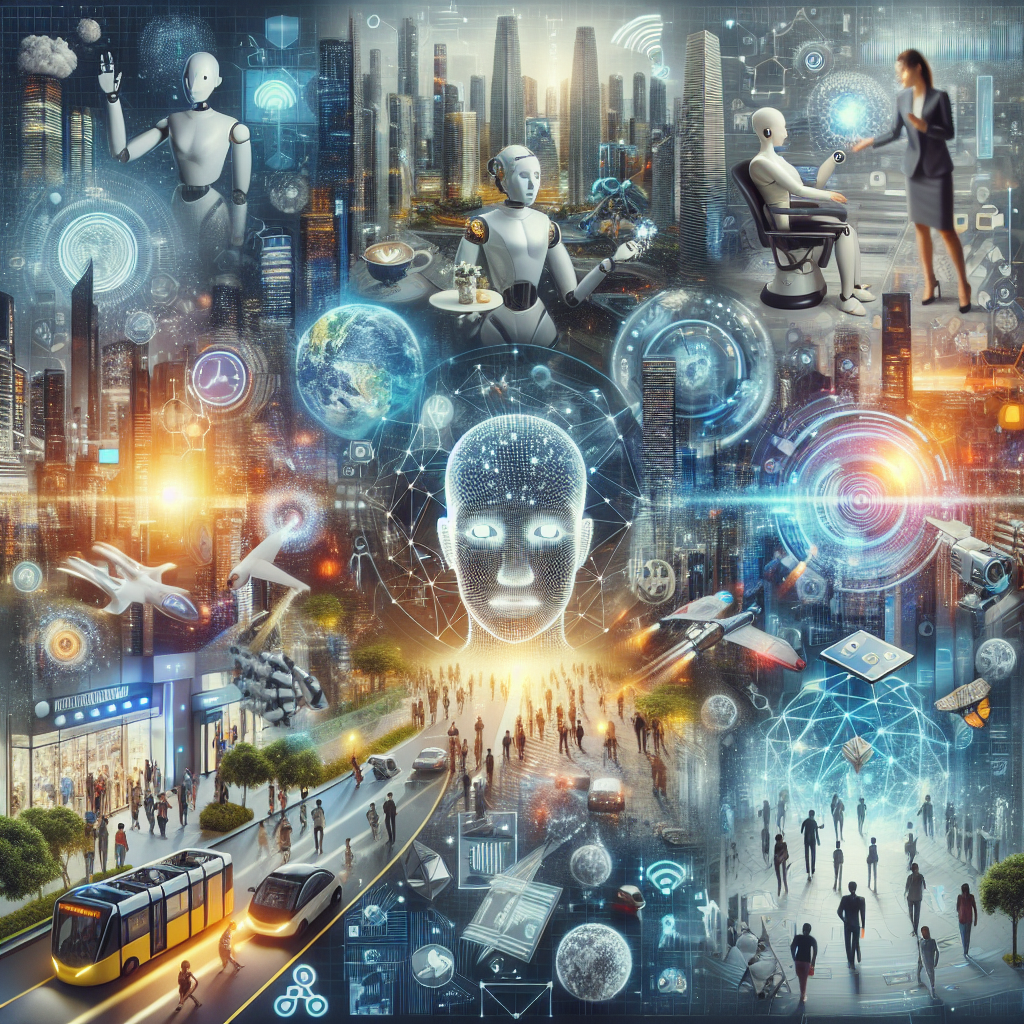Artificial General Intelligence (AGI) is a term that refers to a type of artificial intelligence that has the ability to understand, learn, and apply knowledge in a wide range of tasks, similar to human intelligence. While current AI systems are limited in scope and are designed for specific tasks, AGI has the potential to revolutionize various industries and transform our society in ways we can only begin to imagine.
In this article, we will explore the potential impact of AGI on society, how it may change the way we live and work, and the ethical considerations that come with the development of such powerful technology.
The Rise of AGI
The development of AGI has been a goal of researchers in the field of artificial intelligence for decades. While we have made significant advancements in machine learning and AI technology, creating a system that can truly replicate human intelligence remains a challenge.
However, recent breakthroughs in deep learning, neural networks, and other AI techniques have brought us closer to achieving AGI. Companies like OpenAI, DeepMind, and Google are leading the way in developing advanced AI systems that have the potential to surpass human intelligence in certain tasks.
The Impact of AGI on Society
The potential impact of AGI on society is vast and far-reaching. Here are some ways in which AGI could transform our world:
1. Automation of Jobs: One of the most immediate effects of AGI will be the automation of jobs. As AI systems become more intelligent and capable, they will be able to perform a wide range of tasks that currently require human intervention. This could lead to widespread job displacement and the need for new skills and job training programs.
2. Healthcare: AGI has the potential to revolutionize healthcare by improving diagnostics, treatment planning, and patient care. AI systems could analyze vast amounts of medical data to identify patterns and trends that human doctors may overlook, leading to more accurate diagnoses and personalized treatment plans.
3. Transportation: Self-driving cars and trucks powered by AGI could make transportation safer, more efficient, and more environmentally friendly. These vehicles could reduce traffic congestion, accidents, and emissions, while also providing mobility solutions for people who are unable to drive.
4. Education: AGI could personalize learning experiences for students by adapting to their individual needs, interests, and learning styles. AI tutors could provide real-time feedback and support, helping students achieve their full potential.
5. Creativity: AGI has the potential to enhance human creativity by generating new ideas, designs, and artworks. AI systems could collaborate with humans to create music, literature, and visual art that push the boundaries of what is possible.
Ethical Considerations
As AGI becomes more advanced and pervasive in our society, there are important ethical considerations that we must address. These include issues related to privacy, bias, accountability, and control.
Privacy: AGI systems will have access to vast amounts of personal data, raising concerns about privacy and data security. It will be crucial to develop robust regulations and safeguards to protect the rights and autonomy of individuals.
Bias: AI systems are only as good as the data they are trained on, and biases in the data can lead to biased outcomes. It is essential to address issues of bias in AI algorithms to ensure fair and equitable decision-making.
Accountability: Who is responsible when an AGI system makes a mistake or causes harm? Establishing clear lines of accountability and liability will be crucial as AI systems become more autonomous and independent.
Control: As AGI systems become more intelligent and capable, there is a risk that they could surpass human understanding and control. It will be important to develop mechanisms for ensuring human oversight and intervention in AI decision-making.
FAQs
Q: When will AGI be achieved?
A: It is difficult to predict when AGI will be achieved, as it depends on a variety of factors such as technological advancements, research breakthroughs, and funding. Some experts believe that we could see AGI within the next few decades, while others are more cautious in their predictions.
Q: Will AGI replace human intelligence?
A: While AGI has the potential to surpass human intelligence in certain tasks, it is unlikely to completely replace human intelligence. Instead, AGI will complement and enhance human capabilities, leading to new opportunities and challenges.
Q: What are the risks of AGI?
A: The development of AGI poses various risks, including job displacement, ethical concerns, and the potential for misuse. It will be important for researchers, policymakers, and society as a whole to address these risks and develop safeguards to mitigate them.
Q: How can we ensure that AGI benefits society?
A: To ensure that AGI benefits society, we must prioritize ethical considerations, transparency, and accountability in the development and deployment of AI systems. It will be essential to engage with diverse stakeholders and involve them in the decision-making process.
In conclusion, AGI has the potential to revolutionize our world in ways we can only begin to imagine. While the development of AGI presents numerous challenges and risks, it also offers exciting opportunities for innovation, progress, and human flourishing. By addressing the ethical considerations and working together to shape the future of AI, we can harness the power of AGI for the benefit of all.

